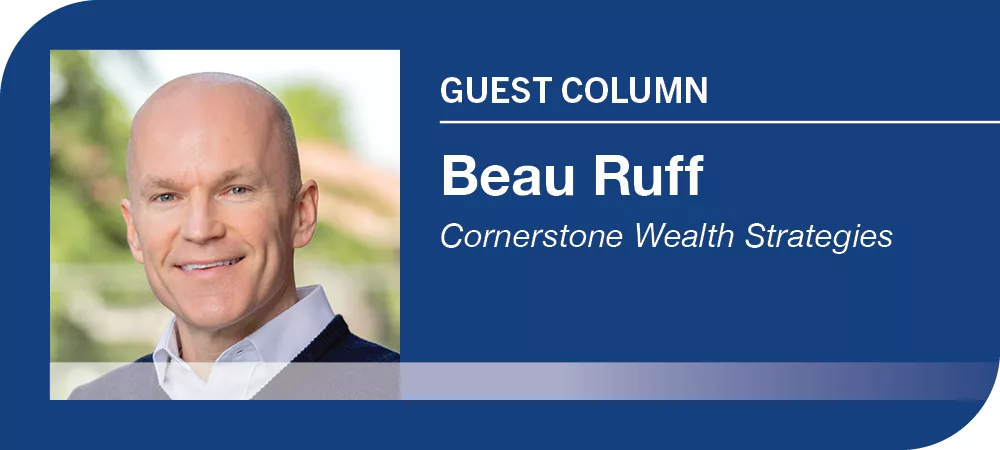
Home » Washington capital gains tax is here to stay
Washington capital gains tax is here to stay

May 11, 2023
The Washington State Supreme Court released its long-awaited opinion upholding the constitutionality of the new Washington Capital Gains Tax in Quinn v. State of Washington on March 24. Accordingly, the state’s capital gains tax is here to stay – at least as far as any law can be said to be here to stay.
So, what is the tax and what planning can individuals do to mitigate it?
What is the tax?
Washington now imposes a 7% tax on realized long-term capital gains (LTCG) in addition to any other taxes imposed by the federal government. For most people, the federal taxes on capital gains are currently between 15% to 23.8%. Accordingly, an additional 7% can make the total tax as high as 30.8%.
However, the Washington LTCG tax does not apply to some big potential sources of capital gains. It does not apply to real estate sales and retirement accounts. Additionally, there are two major deductions available that will wipe out the tax liability for most people.
First, there is a standard deduction of $250,000 (same for couples or individuals) against the taxpayer’s capital gains. Thus, if the taxpayer realizes $200,000 of capital gains, that amount is less than the deduction and therefore the taxpayer would not owe any Washington long-term capital gains tax.
The second major deduction applies to capital gains attributable to the sale of a qualified family-owned small business. To qualify, the family-owned small business must have worldwide gross revenue of $10,000,000 or less in the 12-month period immediately preceding the sale. This might work well to protect high-margin professional service industry businesses but does little for others.
Keep in mind that for most, this tax is irrelevant. The Washington Department of Revenue estimates that only about 1/10th of 1% of Washingtonians will pay the tax this year.
But, for those who do face the tax liability, can anything be done to mitigate or eliminate the tax?
Attention to capital gains
Taxpayers will have a higher incentive to scrutinize potential long-term capital gains more closely in light of this law.
As people start to anticipate their individual potential liability, they must look both at what gains are excluded and the deductions available.
A taxpayer should estimate anticipated long-term gains and make plans to reduce or eliminate gains above the standard deduction threshold. If opportunity exists, it might mean spreading gains out over two tax years.
Additionally, charitable giving opportunities exist to gift appreciated assets (like stock) to charity so the taxpayer can avoid the realization of capital gains (or perhaps those capital gains that put the taxpayer over the applicable threshold).
Should I move out of state?
Any contemplation of moving out of state to avoid a tax requires an evaluation of the new state’s tax structure to ensure that the taxpayer isn’t inadvertently subjecting himself to another unanticipated tax (or losing an unexpected tax benefit).
Still, moving can be an effective strategy to avoid the tax.
Sometimes a move pairs well with other Washington tax considerations (e.g., the Washington estate tax is the highest in the nation). And sometimes the decisions to avoid taxes and move come together at a convenient point in time (e.g., imagine a 65-year-old finally anticipating retirement and moving somewhere warm and trying to avoid the WA LTCG tax on the sale of her business).
Of course, any move would need to occur before the sale of the asset.
Non-residents should still pay attention to the law to ensure the sale of property located in the state isn’t subject to the tax.
For example, a business with a non-resident owner would want to plan to sell via a stock sale (which is deemed to be an intangible asset outside of Washington) versus an asset sale (deemed to be a tangible asset located in the state and thus subject to the tax).
Multi-entity planning
Separating business interests into multiple entities might help avoid the tax.
For example, the operating arm of the business might be set up as an S corporation, while the real property owned by the same owner is set up in a separate limited liability company (LLC). This kind of separation has historically been used to both limit liability and to minimize federal taxes.
Now, there is further reason to consider this type of planning as the separation of real estate assets into a real estate LLC more easily divides the asset between those that are potentially subject to WA LTCG tax (the operating business) and those that are not (the real estate held by the LLC).
Furthermore, if an operating business has distinct operating lines, it might be advisable to split the two businesses so that each part might qualify under the small business threshold for revenue.
Will the law survive?
Any law is subject to change. But, as noted at the beginning of this column, this one stays on the books – for now. The law has survived the Washington Supreme Court. The law is not subject to referendum. And, although voters can use the initiative process to repeal the law, this has already been attempted through several different iterations, but all have failed to garner the necessary signatures for inclusion on a ballot.
Beau Ruff, a licensed attorney and certified financial planner, is the director of planning at Cornerstone Wealth Strategies, a full-service independent investment management and financial planning firm in Kennewick.
Opinion
KEYWORDS may 2023





